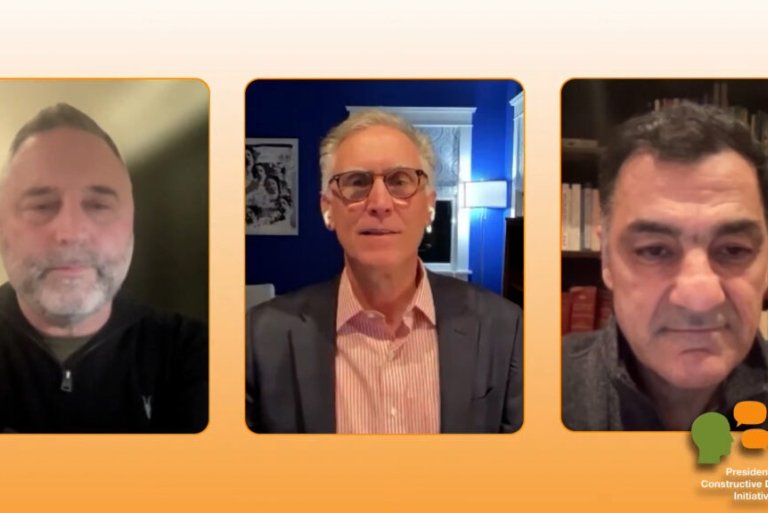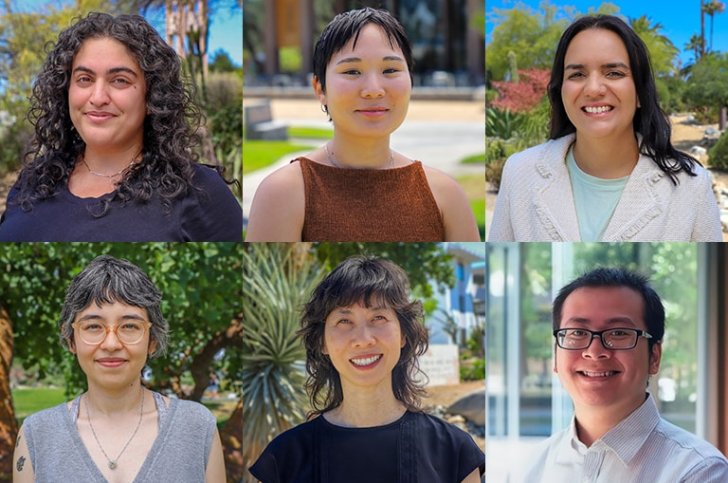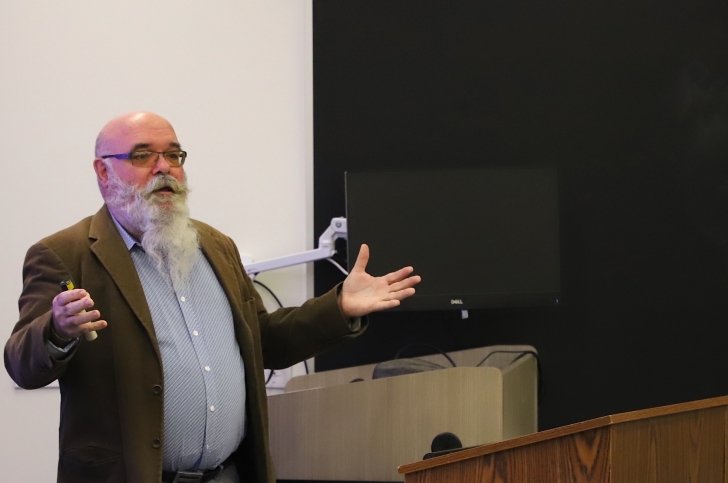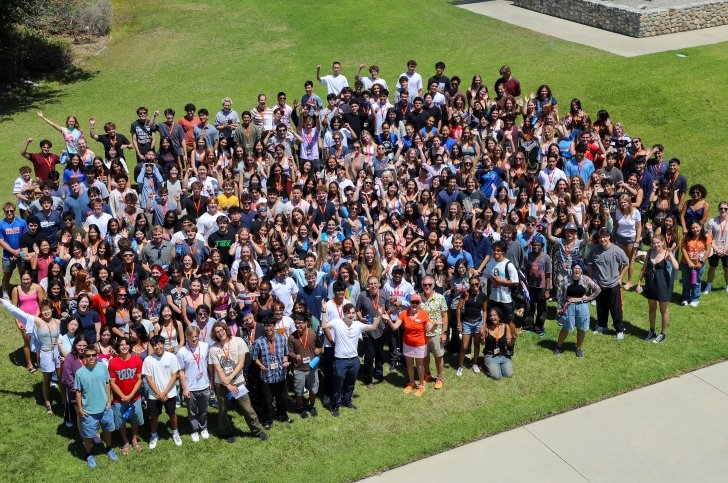How Do We Talk About Israel and Palestine?

The Pitzer College Presidential Initiative on Constructive Dialogue facilitated the event “How Do We Talk about Israel and Palestine?” on February 5. President Strom C. Thacker moderated a conversation between Salam Al-Marayati and Daniel Sokatch, who have collaborated at other events on dialogues about Palestine and Israel. The event took place via Zoom due to extreme weather conditions in Southern California.
Al-Marayati is the president and co-founder of the Los Angeles-based Muslim Public Affairs Council. He is an expert on Islam in the West, Muslim reform movements, human rights, democracy, national security, and Middle East politics. He has represented the U.S. at international human rights and religious freedom conferences.
Sokatch is the CEO of the New Israel Fund and author of Can We Talk About Israel? A Guide for the Curious, Confused, and Conflicted. He previously served as the CEO of the Jewish Community Federation, Bay Area and Sonoma County, and was the founding executive director of the Progressive Jewish Alliance (nowBend the Arc).
Thacker introduced the conversation by encouraging the participants to “agree to disagree agreeably,” which is a guiding principle for the presidential initiative. Al-Marayati and Sokatch approved of this approach, and both described the philosophies that have steered them through challenging conversations. These included staying informed, resisting tribalism and extremism, remembering the roots of one’s faith, and leaning into empathy, humility, and compassion.
Sokatch mentioned how 9/11 threatened to derail the work that he and Al-Marayati were doing decades ago, but their Muslim and Jewish mentors called them to lean into the discomfort. Since then, Sokatch and Al-Marayati have defended each other and the need for dialogue to their own communities over the years.
Al-Marayati and Sokatch also acknowledged the complex narratives, intense pain, and deep connection to the land that Israelis and Palestinians are experiencing in the Middle East and beyond. Al-Marayati emphasized that nonviolent resistance transcends saying nice things to each other and requires a willingness to have difficult conversations and to recognize differences.
The panelists’ discussion ranged across a variety of topics, from Islamophobia and antisemitism to the Boycott, Divestment, and Sanctions movement. Even though they didn’t agree on every topic, they supported each other’s right to dialogue and opposed the tendency one sees now to demonize the other side. Above all, they valued active listening and nuanced conversation—both in the university setting and in other spaces.
Watch the full recording of "How Do We Talk About Israel and Palestine?" here.
News Information
Published
Author
Bridgette Ramirez
Organization
- Presidential Initiative for Constructive Dialogue


